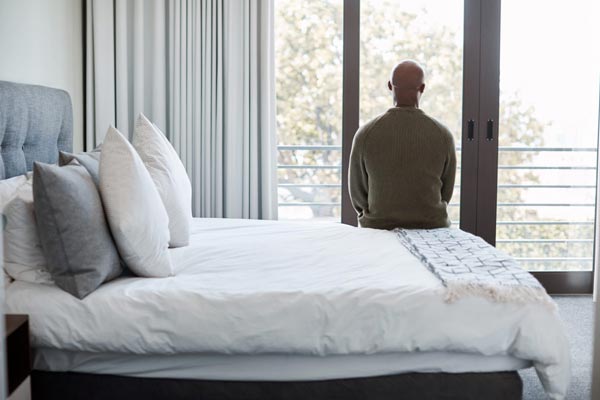The Los Angeles Department of Mental Health reported in 2018 that there were 1,316,000 residents with depression. Of those, 496,000 are male, and 812,000 are female. The age group with the highest number of depression was 30 to 39, with 250,000 people.
This group was followed by 249,000 people aged 50 to 59; 229,000 aged 40 to 49; 194,000 aged 65 and over; 169,000 aged 18 to 24; 117,000 aged 60 to 64; and 109,000 aged 25 to 29.
These numbers represent cases before the pandemic and don’t include the numerous unreported cases or the many children and teens with depression. Interesting statistics reported on groups with the highest rates of depression include the Latino population over half a million; people with some college or trade school with 466,000; those living 300% above the federal poverty level; and West LA County and West Valley with over 100,000 each.
Because depression affects many in our area, we must provide information on depression treatment. Fortunately, major depression is a disorder with several types of depression treatment options that work.
Below are the recommended treatment steps for someone who thinks they may be dealing with significant depressive symptoms.
Getting a Diagnosis
If you think your symptoms are related to depression, it’s important to confirm this with a psychiatrist at your local mental health center. The doctor can assess your biological, physical, emotional, and social histories to ensure your symptoms are unrelated to another issue.
Medical conditions can both cause and are confused with depression. Lyme disease and hypothyroidism are two examples. Living in a hostile environment, experiencing a recent loss, and having marriage problems are a few more reasons people feel depressive symptoms.
For many, the problem is lower levels of Serotonin and Norepinephrine in the brain and gut. You can see why getting an accurate diagnosis is vital to ensure successful treatment.
Examining the Criteria
The Diagnostic and Statistical Manual of Mental Disorders is the go-to guide for psychiatrists in the diagnostic process. There are specific guidelines assigned to Major Depression that you must meet, including having five or more of the symptoms below for a minimum of two weeks.
- Feeling depressed or sad for most of the day
- Losing interest in activities you once enjoyed
- Experiencing weight changes
- Slowing down of thoughts and physical movements
- Feeling excessively tired
- Feeling hopeless, worthless, guilt, or shame
- Having trouble concentrating, focusing, and making decisions
- Having thoughts of death, either thoughts of self-harm or just wishing you were not here anymore.
These aren’t the only symptoms related to depression, however. You may have unique specifiers that help in making a diagnosis. You may feel aches and pains in your joints, have crying spells for no reason, alternate feeling depressed and anxious, have mood swings, get easily agitated, and want to stay in bed all day rather than take care of responsibilities.
Other specifiers may be related to co-occurring disorders or having a mental health and substance abuse disorder simultaneously—also, premenstrual, postpartum, seasonal changes, or mania. You must tell your doctor all symptoms you have, whether you think they are significant or not.
Developing a Treatment Plan
Working with your psychiatrist or licensed mental health professional, you will develop a plan of action to overcome major depression. Depending on the severity of the symptoms, your doctor will recommend different levels of care.
A person having suicidal thoughts will need access to more intense treatment at first than someone who reports feeling sad but is still high functioning. A treatment plan gives you a starting point for getting better. You can set goals and measure progress with them. Most people with major depression participate in a combination of treatments for the best results.
Medication for Depression
Your psychiatrist can determine if you can benefit from medication to help rebalance the neurotransmitters associated with major depression. Medicine aims to get you feeling well enough to participate in therapeutic activities that teach you how to cope and overcome depression.
Common medicines target Serotonin or both Serotonin and Norepinephrine. When you take the medication, it enters your brain and gives it extra support in producing “happy” chemicals.
Getting the correct dose at first is a trial-and-error process. Most doctors start you with the lowest amount and add medication if needed. They may also try a combination of medicines. If you have tried multiple variations of medication combinations, and nothing has worked to improve your symptoms, you may want to consider advanced treatments using ketamine.
Ketamine for Treatment-Resistant Depression
If your psychiatrist qualifies you for ketamine therapy, treatments will be given at the mental health center under clinical supervision and monitoring. Ketamine is an illegal drug when used recreationally. In a clinical setting, ketamine provides many people relief from depression.
Ketamine is considered a hallucinogen. It works on the happy chemicals in your brain, including dopamine, that give you a feeling of reward, calm, and relaxation. When administered properly, ketamine can restructure the brain so you can have long-lasting positive effects.
You will be given the smallest dose through an IV, injection, or nasal spray. The treatment takes less than an hour, but the effects will last for weeks and months. Most people require several sessions within two months for maximum benefits.
Traditional and Complementary Therapies
You will have numerous treatment options for depression. Most doctors and therapists combine traditional and complementary therapies. Traditional methods include individual and group activities using cognitive behavioral therapy, trauma therapy, and motivational enhancement therapy.
Complimentary treatments may include light therapy, journaling, dialectical behavioral therapy and mindfulness, and lifestyle changes. Ketamine-assisted therapy is a newer treatment with excellent results. It involves working with an individual therapist during your treatment with ketamine administered by the psychiatrist.
What you may not know is you can reach out for help today. Our specialists can provide more information on how we treat depression through in-person or telehealth services. We can help you start your journey toward living a happy life.





